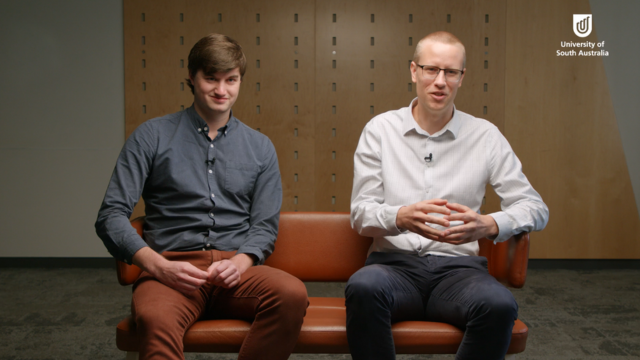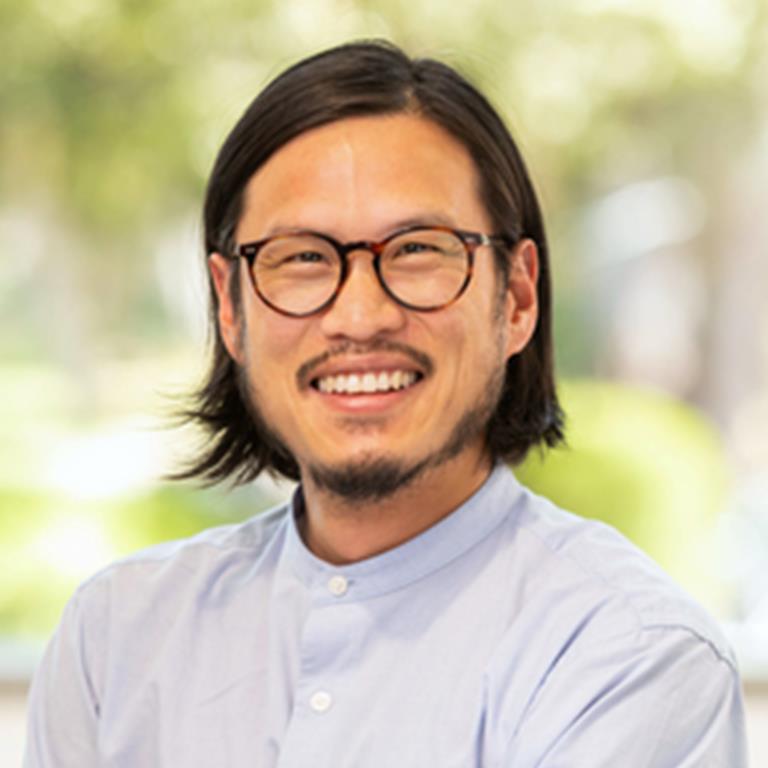Bachelor of Arts (Honours)
Degree Level Undergraduate
Year 2024
You're considered an Australian student if you are any of the following:
Degree Level Undergraduate
Year 2024
Prerequisites
None
Assumed Knowledge
None
Entry Scores
2024 Guaranteed Entry
TAFE/RTO: N/A
View Guaranteed Entry Info
2023 Cut-Offs
View full entry requirements
Entry into the Honours program will be available to students who have successfully completed an undergraduate degree or equivalent with an overall grade point average of 5 or above (credit level average). In addition applicants need to have achieved:
Applicants are selected on the basis of academic merit and the availability of a supervisor in the proposed area of research.
This program is not currently open for applications
12018 ARC Engagement and Impact Assessment (EI), Combined Impact –Approach to Impact and Engagement on Assessed Fields.
2ComparED (QILT) Student Experience Survey 2021-22, Learning Resources Indicator (Undergraduate). SA public universities.
This one-year Honours degree will equip you with advanced skills in research, critical thinking and writing.
Under the guidance of an appointed academic supervisor you will complete your own thesis or artefact-plus-exegesis project, and graduate with an in-depth understanding of your chosen field of specialisation.
The key focus of the Honours degree is research and the production of a pure thesis or artefact-and-exegesis at the end of your studies. Your research could be based on one of the following subject areas:
You can gain an extra qualification and broaden your career prospects by completing a Diploma in Languages.
This program is a substantial research degree that allows you to develop expertise in a particular area of study of your choice, under the guidance of an experienced academic supervisor. Graduating with an Honours degree will set you apart from the crowd, ensuring you have a competitive edge and are well-placed for a career in industry, research or further postgraduate study.
In this Honours degree, you will be taught by our world-class educators and researchers, with expertise in complementary disciplines such as linguistics, language studies, screen studies, media and communications, sociology, politics, psychology, social work, human services, arts and Aboriginal studies.
Our relationships with industry and government bodies enables our students to contribute toward improving public policy, community development, and social, creative and economic outcomes in Australian society.
UniSA’s Bachelor of Arts is taught by world-class educators and researchers and enables you to pursue two areas of academic interest at once. Hear from UniSA student Luke Heathorn and Program Support Coordinator Louis Everuss on what it's like studying our Bachelor of Arts degrees.

Arts students go on to enjoy rewarding careers in a range of industries, including:
As an Honours student you may also choose to pursue a career in research – graduates with Honours are highly sought after by prospective employers, particularly in academia and research environments.
Before applying, you will need to discuss your proposed topic with an academic staff member who is willing and able to supervise you; if you are unsure of whom you should approach about this, contact the Program Director, Dr Brad West.
To be considered for entry, you must:
Please note: Honours applicants need to provide extra documentation as part of their application. If you do not provide this information, your application cannot be considered as the Academic Unit needs to ensure that it has the appropriate supervision required for the project to be undertaken.
To apply to study with us
Every year, over 2,500 UniSA students are supported in their studies through scholarships and grants worth millions of dollars. Check out the scholarships below. One of them may be perfect for you. Visit our scholarships page for more.
$5,000 scholarship for South Australian students with an ATAR of 99 who enrol to study a UniSA undergraduate degree.
Up to $10,000 per annum (full time) for South Australian students who obtain an ATAR of 99.95 or IB equivalent and enrol to study at UniSA.
Our campuses are home to fantastic facilities including modern lecture theatres, libraries, workshops and laboratories, as well as spaces that simulate real work environments. But you’ll also discover that your journey at UniSA is about social experiences, healthy living and getting involved. You’ll find student sports and fitness facilities, community clinics, tech zones and chill-out spaces. There are campus sport activities to keep you active, and if you are keen to explore the social side of university life, there are movies, cooking demonstrations, parties and loads more.
Adelaide also has a variety of accommodation options to suit different requirements and budgets. Options include dedicated student accommodation and private rentals. See our long-term accommodation pages, or explore our student accommodation by Scape on Bank Street in Adelaide’s lively cultural precinct, an ideal location for students. It is within easy reach of UniSA’s city and metropolitan campuses, Rundle Mall shopping, the Central Market, Chinatown, and the West End’s vibrant nightlife. It is also across the road from the Adelaide train station, and on bus and tram routes.
As an arts student you will have access to:
I am a Senior Lecturer in Screen Studies at the University of South Australia. I am also an internationally recognised researcher who specialises in film, media and visual culture studies, often bringing film into dialogue with other disciplines in the humanities. Prior to academia, I worked as an Assistant Curator of Exhibitions with the Australian Centre for the Moving Image, where I helped to curate a number of film programs, exhibitions, screen and art related events for the public. I believe my commitment to high-quality, interdisciplinary research and teaching, as well as its real-world application will enable Honours students to achieve their best in this degree.
There are a number of ways to apply to study UniSA's undergraduate and postgraduate coursework degrees.
Applications for admission into the University of South Australia’s undergraduate and most postgraduate degrees are made via the South Australian Tertiary Admissions Centre (SATAC). Visit satac.edu.au and follow the links.
For the MBA degrees please apply through the UniSA MBA Application Portal. Applications for a small number of degrees are submitted direct to UniSA through our Apply Online portal. It will be noted on the degree page if you need to apply via Apply Online.
Postgraduate study by research
For information on applying to do postgraduate study by research, including Master of Research, PhDs or Doctorates, please visit unisa.edu.au/resdegrees.
Undergraduate
Yes. The deadline to apply to study a degree at UniSA for semester one (commencing late February) and be given equal consideration is in early December. While you may be able to apply after this date, you are not guaranteed to be considered equally with other applicants and your application may not be assessed in time for the main round of offers (mid January). Some degrees will not make any offers after the main offer round. Please click here find all of the key dates for applications here.
Postgraduate
Most postgraduate degrees do not have a closing date for applications. However, there are exceptions, so it is best to check – either on the SATAC website, Apply Online or the degree homepage. Postgraduate offers are normally ‘rolling’, meaning they may be sent out at any time up until the program starts. This also means that applications may close at any time without warning, if the quota is filled earlier. For this reason, postgraduate applications should be submitted without delay. For more information, please contact our Future Student Enquiries team on (08) 8302 2376 or via the online enquiry form.
Credit transfer or advanced standing
You may be eligible to receive a credit transfer or advanced standing for your chosen UniSA degree based on your previous studies, if they are in a related area at an equivalent or higher level. Receiving a credit transfer will reduce the number of courses you undertake within the degree, and may also reduce the overall duration of your degree.
Recognised prior learning
If you have related industry experience, you may also be eligible to receive recognised prior learning for this experience. Receiving recognised prior learning will normally reduce the number of courses you undertake within the degree, and can reduce the duration of the degree.
How do I get credit?
Credit transfer and recognition of prior learning is assessed on a case-by-case basis by the Program Director who will discuss your prior learning and experience with you to ascertain what credit you may be eligible for.
Many of our credit transfer arrangements are listed on our online Credit Assessor.
UniSA welcomes the opportunity to speak with you regarding your study options. Our staff are able to talk to you about degree information, career outcomes and pathways, entry requirements, applications, and student life, so that you are able to make the best study decision for your future.
Click here to book a 1:1 appointment with one of our enquiries team.
If you are interested in studying an MBA please contact admissions@unisa.edu.au and our Future Student Enquiries team will contact you regarding your enquiry.
Alternatively, you can complete a MyCareerMatch career profile. MyCareerMatch is an online career profiling tool that you can use free-of-charge through UniSA. MyCareerMatch specialises in career profiles and provides you with a personalised career report outlining information about your personality style and a list of career options, which are complementary to your natural strengths and talents.
We have many events throughout the year where you can speak with a lecturer or tutor about your degrees of interest. You can find out what is happening at UniSA by visiting our events page or by signing up to our mailing list, so you're the first to know about careers events, information sessions, degree requirements, scholarships and more!
There are also many career counsellors external to the University that you can discuss your career options with. If you are unsure where to start your search, you can contact the Government's Work Ready team (formally Skills for All). Visit skills.sa.gov.au or call 1800 506 266.
You may also find Job Outlook a helpful resource in your decision-making.
It can be difficult to decide what degree you would like to do and where. You might find information from government organisations will help to weigh up your degree and provider options.
Find a course or a provider
TEQSA is a regulatory body for higher education providers. Use the TEQSA national register of higher education providers to search for a course or a provider. Compare courses and providers for undergraduates and postgraduates using the Quality Indicators for Learning and Teaching (QILT) online comparison tool.
More information on university admission
Visit the SATAC website to find out important news, events and information on applying to university in South Australia. Visit Study with Us to find out everything you need to know about studying at UniSA, admissions and the application process.
Questions about your application
If you have any questions or concerns regarding your application you should contact the Future Students Enquiries team in the first instance.




